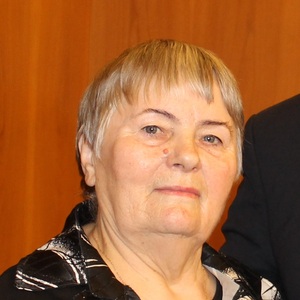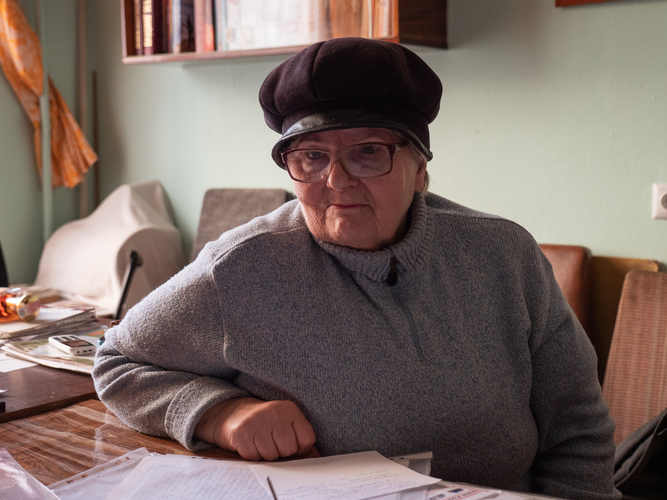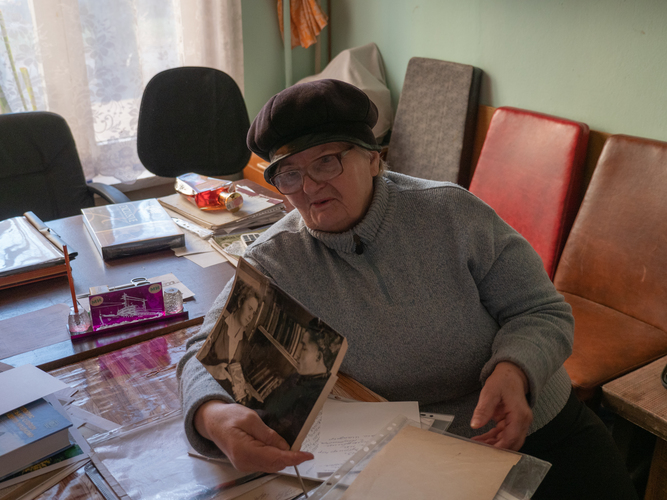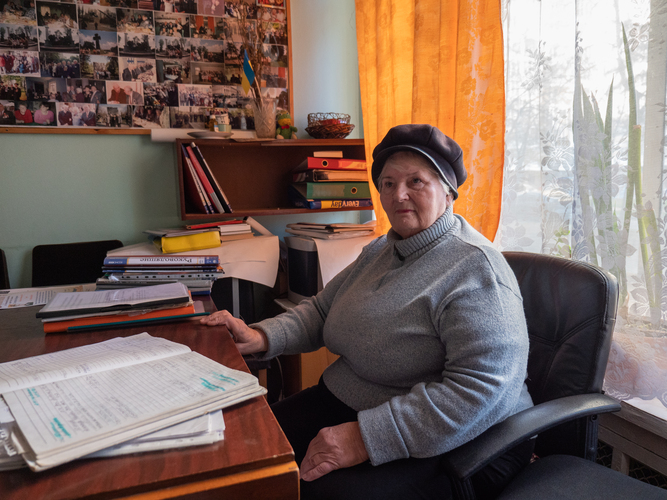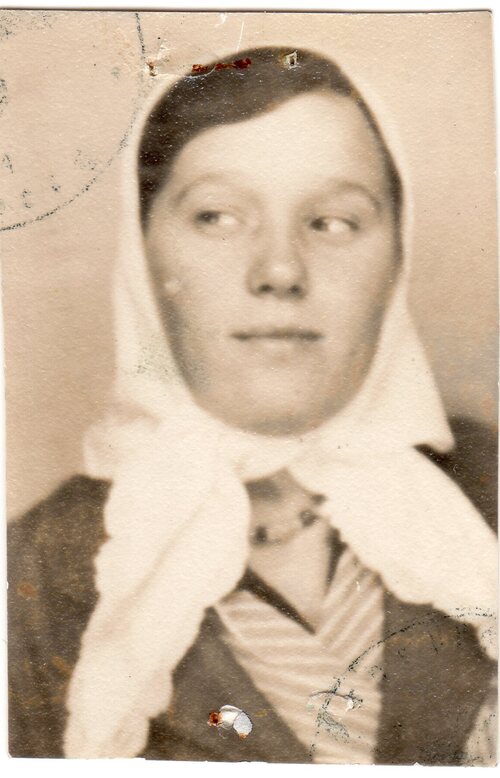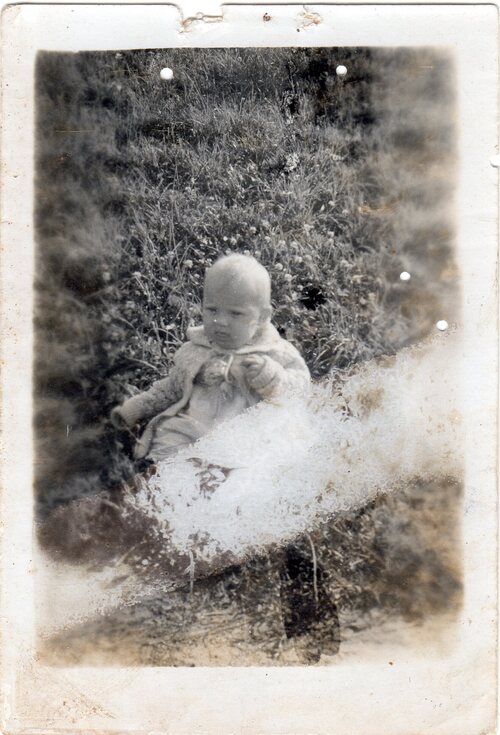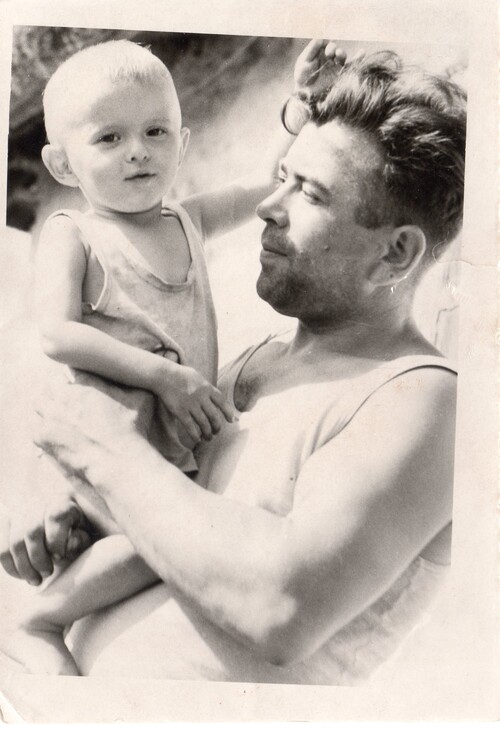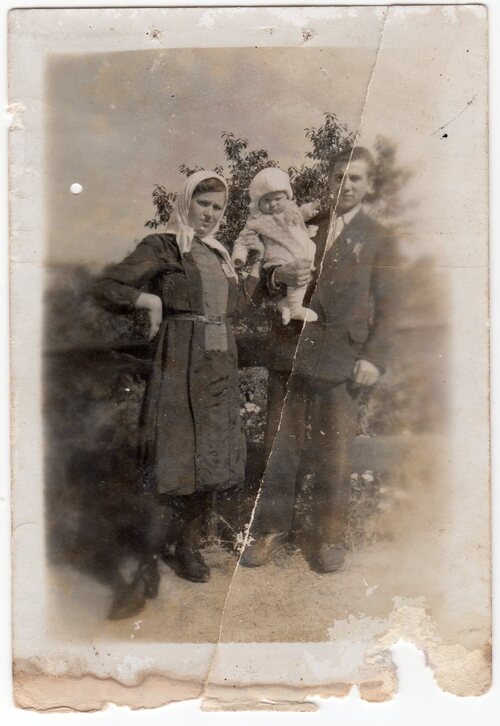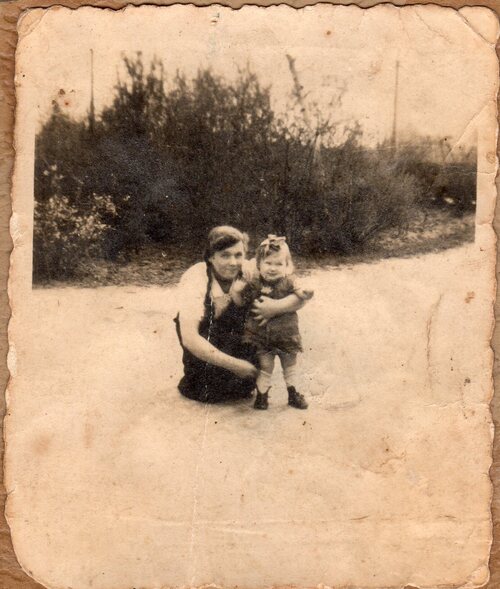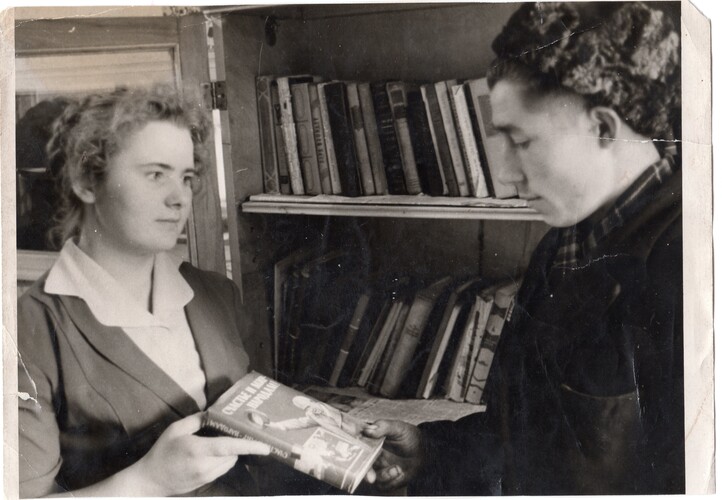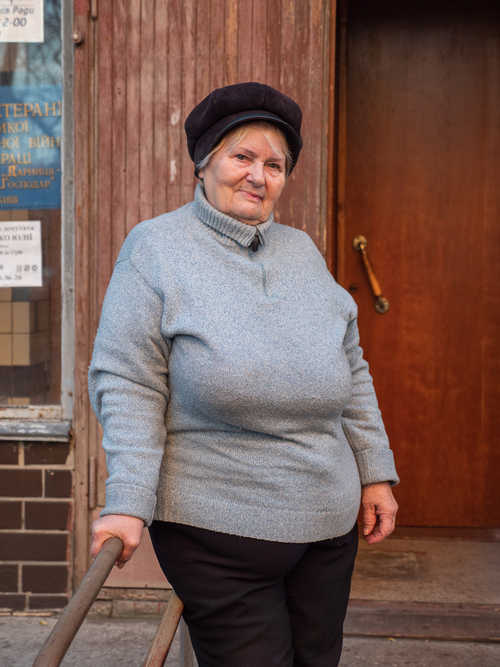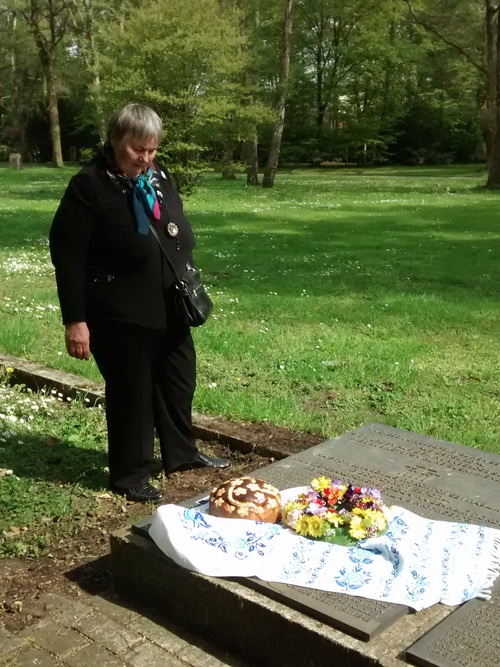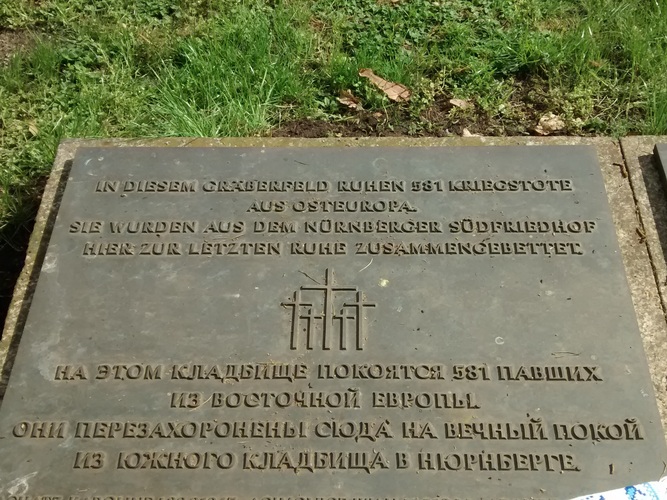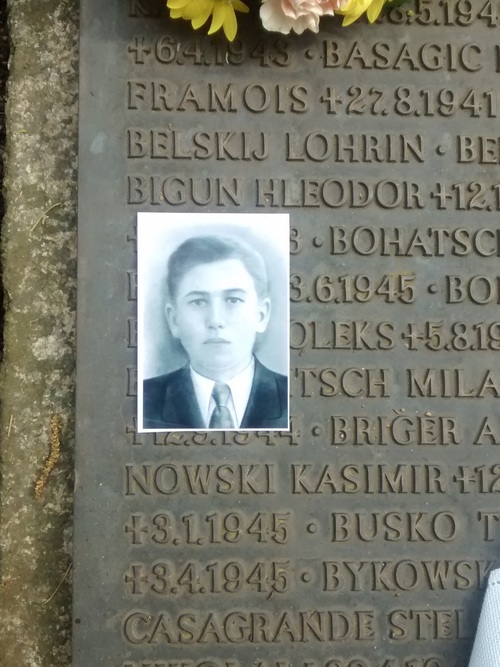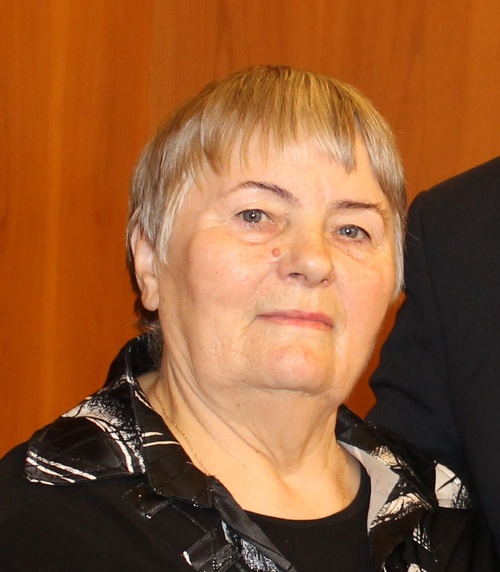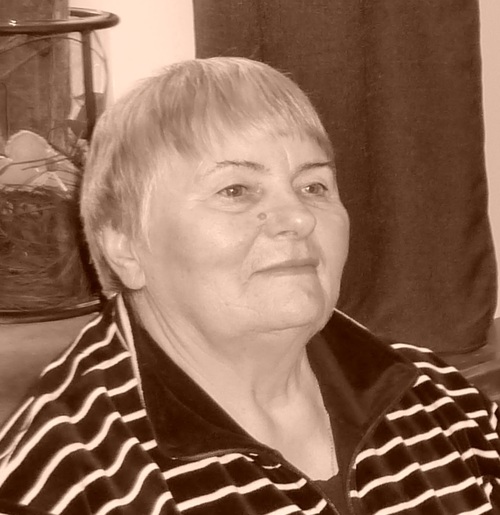Lyubov Kryylivna Sakhno was born on January 14, 1943, in Nuremberg, Germany, as the child of Ukrainian forced labourers. Prior to her birth, in December 1942, her parents Topikha Anna Akymivna (*1925) and Bigun Fedir Ivanovych (*1924) were taken from their village Ploske in the Brovary Raion, Kyiv Oblast. When they were deported to Germany, Lyubov’s mother was already pregnant with her. Her parents were first taken to a transit camp in Munich and quickly separated: her father was sent to a military factory in Nuremburg, while her mother was assigned to a pencil factory in Munich. Through their correspondence with relatives, the two were able to locate each other and even meet occasionally.
After Lyubov was born, she was sent to a type of nursery with other children of forced labourers, where she came under the care of German and Ukrainian women. Her mother was sent back to work at the factory and was not given the opportunity to breastfeed or take care of her daughter. Her father managed an occasional weekend visit to Munich; although she was too young to remember these visits, she still has a handful of photos taken on one such occasion. Lyubov’s father died before her second birthday. One of his cousins had successfully escaped from Germany back to Ukraine and this incident inspired him to attempt something similar. He was caught and imprisoned in a penal camp, where he died from meningitis on November 12, 1943.
At the end of the war, Lyubov and her mother returned to Ukraine alone. When they reached their home, they discovered that their village had been burned to the ground. They also discovered Lyubov’s maternal grandparents living in a dugout, which they had built themselves. Her mother began working on a collective farm (“kolkhoz”), and remarried in 1947 – not out of love, but out of familial obligation: the man that had been courting her had access to badly needed building materials and could help with building windows and doors. Her family forced the match on her mother: “Don’t be picky. Come on, marry him. He is helping you!” Her mother succumbed to the pressure and married. When she and her mother moved in with her new stepfather, Lyubov continued to have a difficult childhood as her mother and stepfather fought frequently. Even as an adult, she continued to be saddened by the early loss of her father: “You know, even after all of this happened, even at my age, I still miss him so much.” Although she resented the relationship between her mother and stepfather, she remained dependant on him. The family moved to the Darnytskyi District of Kyiv, where her mother worked in the chemical laboratory of a radio factory, until she became a homemaker after giving birth to three sons.
Lyubov attended school up until the eighth grade, after which she went to work. She decided to continue her education in evening school and was able to complete the tenth grade. Subsequently, she was admitted to the Kyiv Automobile and Highway Institute for the evening classes. During her education and afterwards, she did her best to conceal the fact that she was born in Germany. When she applied for a job in a radio factory, a commission reviewed her documents and biographical details for an entire month before she was accepted for the position. She then worked at the same factory for over twenty years between 1953 and 1976, until she retired.
Lyubov travelled to Munich, Germany in 2015, accompanied by a group of other former victims of Nazism. Shortly before the trip, the organizers found her father’s grave – she had been attempting locate it for the past seventy years, without success. She was finally able to pay her respects. Shortly before she left for Germany, she asked herself what to bring her father and decided to bring an embroidered towel, traditional Ukrainian braided bread (“korovai”), a wreath, candles, and a handful of soil from the yard of the house where her father once lived. Unfortunately, she was not able to tell her mother about this experience, as her mother died on May 3 – one day before Lyubov returned home. The next day she went straight from the airport to her mother’s funeral.
Today, during the Russian war of aggression against Ukraine, Lyubov remains in Kyiv. There, she heads the Dnipro district branch of the organization “Union of Prisoners — Victims of Nazism”. Together with her daughter and grandson, she has been organizing aid to the most vulnerable members of her organization – especially during the heavy fighting around Kyiv, when shops and pharmacies had to close. Every day, they delivered hot food, personal hygiene products, diapers, and medicine to immobile former victims of Nazism. Sometimes they even made these deliveries under rocket fire.
Written by Tom (Maastricht), Sophia (Göttingen)
